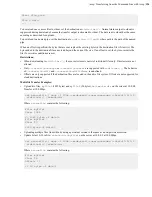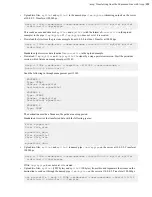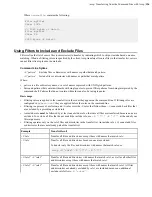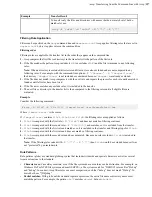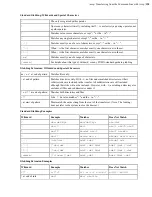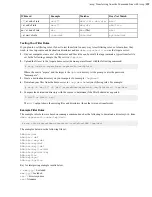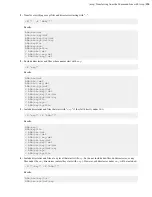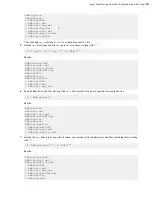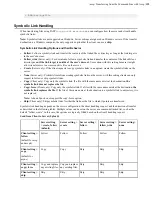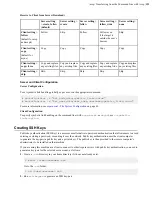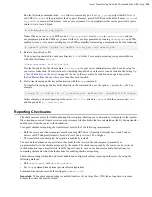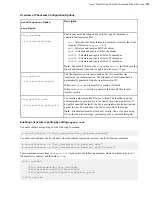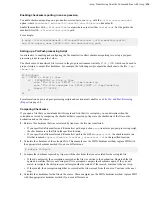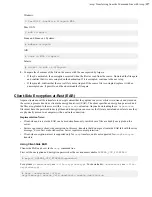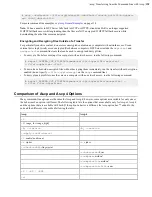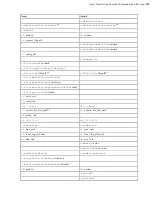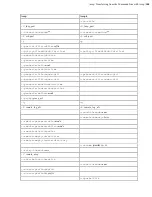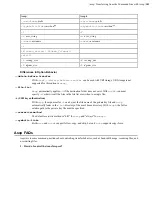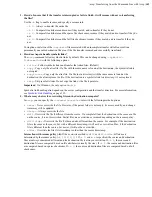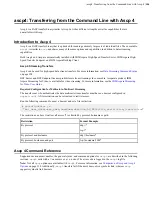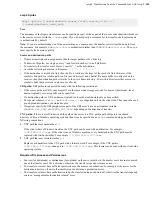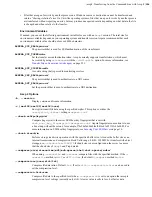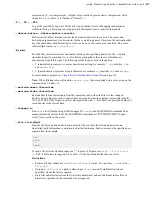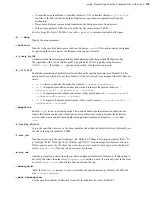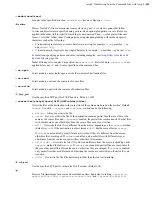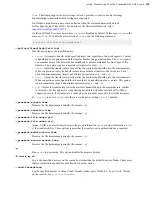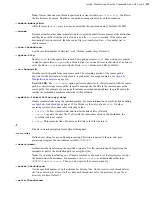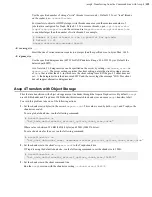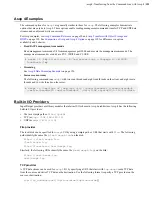
| ascp: Transferring from the Command Line with Ascp |
138
# ascp --mode=recv --file-crypt=decrypt
user
@
host
:/
source_path
/
file
.aspera-
env
local_destination
For more command line examples, see
on page 114.
Note:
When a transfer to HST Server falls back to HTTP or HTTPS, client-side EAR is no longer supported.
If HTTP fallback occurs while uploading, then the files are NOT encrypted. If HTTP fallback occurs while
downloading, then the files remain encrypted.
Encrypting and Decrypting Files Outside of a Transfer
For particularly sensitive content, do not store unecrypted content on any computer with network access. Use an
external drive to physically move encrypted files between computers. HST Server include the
asprotect
and
asunprotect
command-line tools that can be used to encrypt and decrypt files.
• To encrypt a file before moving it to a computer with network access, run the following command:
# export ASPERA_SCP_FILEPASS=
password
;/opt/aspera/bin/asprotect -
o
file1
.aspera-env
file1
• To download client-side-encrypted files without decrypting them immediately, run the transfer without decryption
enabled (do not specify
--file-crypt=decrypt
on the
ascp
command line).
• To decrypt encrypted files once they are on a computer with no network access, run the following command:
# export ASPERA_SCP_FILEPASS=
password
;/opt/aspera/bin/asunprotect -
o
file1
file1
.aspera-env
Comparison of Ascp and Ascp 4 Options
Many command-line options are the same for Ascp and Ascp 4; however, some options are available for only one or
the behavior of an option is different. The following table lists the options that are available only for Ascp or Ascp 4,
and the options that are available with both. If the option behavior is different, the Ascp option has ** added to the
end and the difference is described following the table.
Ascp
Ascp 4
-6
-@[
range_low
:
range_high
]
-A, --version
-A, --version
--apply-local-docroot
-C
nodeid:nodecount
-c
cipher
-c
cipher
--check-sshfp=
fingerprint
--chunk-size=
bytes
--compare=
method
--compression=
method
--compression-hint=
num
-D | -DD | -DDD
-d

